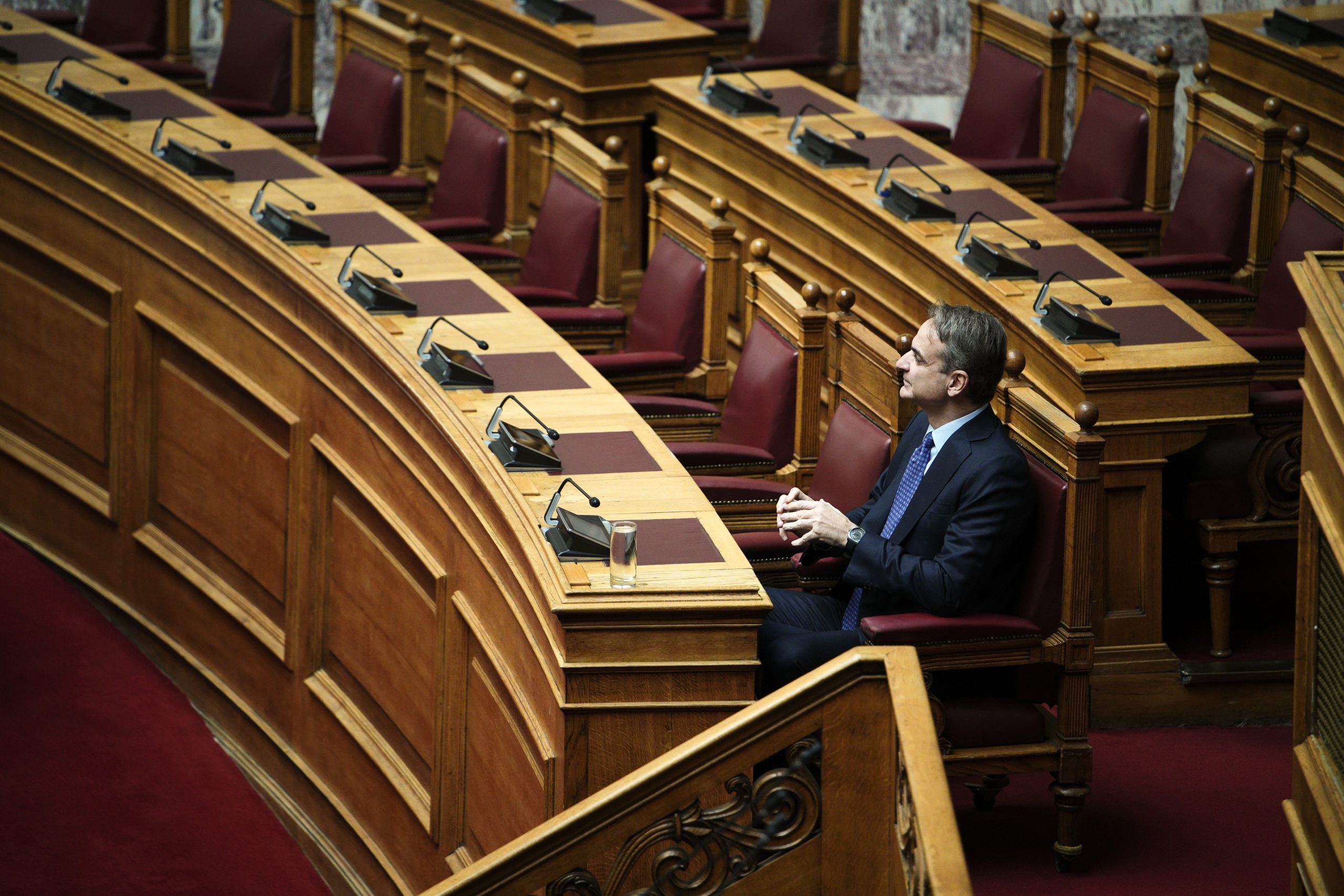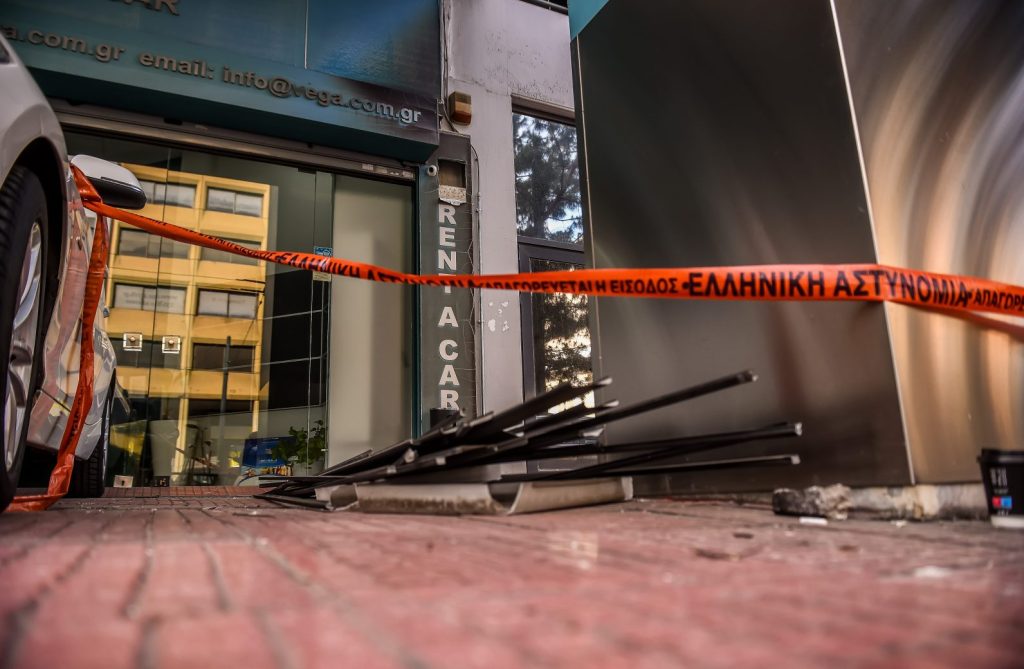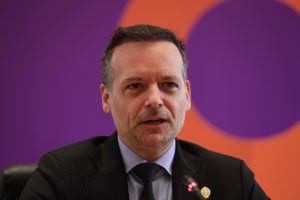Prime Minister Kyriakos Mitsotakis’ decision to nominate hard-core right-wing MP Konstantinos Tasoulas for the highest political office in the land, the presidency, has triggered very public discussions on what type of coalition might rule Greece after the 2027 general elections.
Although, his decision unleashed strong attacks by the opposition – because the PM broke the decades-long tradition of the government nominating someone from the opposite political and ideological camp, so that the president can be a symbol of national unity – that debate has abated.
Yet, even though that political backlash has subsided, as the Constitution allows the president to be elected with the government’s simple parliamentary majority in a fourth parliamentary vote, Mitsotakis is still bedeviled by the huge 1.3 million vote drop in New Democracy’s electoral support between the 2013 general election and the June, 2024 European Parliament elections.
Single-party rule a pipe dream
With a string of public opinion polls showing that ND is a far cry from securing single-party rule in the next general election, Mitsotakis is confronted with the conundrum of considering with which right-wing or centre-left parties he might form a ruling coalition. Here, there are few if any options on the table.
The “popular right” conservatives that have always in the past been the core of the party’s base, are angered with the PM’s opening to the political centre-left – enlisting former PASOK ministers such as Michalis Chrysohoidis (Citizen’s Protection, or public order minister), Yorgos Floridis (justice minister), as well as Akis Skertsos, a top advisor of Mitsotakis.
They have made it perfectly clear that they are highly disgruntled. That was evident in the fact that ND MPs submitted about a dozen parliamentary questions essentially critical of the government, particularly on social policy.
Many in ND’s parliamentary group and its base are sceptical or critical of the PM’s shift toward the the centre and the sub rose courting of the base of the centre-left, though Mitsotakis has been highly critical of PASOK, and both parties, at least for now, vehemently reject the prospect of co-habitation in a coalition government.
If it be true that a party cannot win a general election without the support of centrist voters, it is also true that New Democracy cannot win without the traditional party base.
Hence, the PM will have to devise a balanced strategy for luring back the one million voters that the party has lost, either due to disagreements over policy or because of a general distrust and rejection of the highly splintered and exceedingly toxic character of the political system overall.
ND’s limited coalition options, the prospect of a second general election
Unless PASOK leader Nikos Androulakis does an about-face after the 2027 general elections and decides to form a coalition with New Democracy based on a common programme in order to avoid Mitsotakis proclaiming a second general election (to seek ND single-party rule) – an exceedingly unlikely prospect at this time – Mitsotakis has extremely limited prospects of forming a coalition with parties to the right of ND.
One can safely conclude a priori any cooperation with the far-right nationalist parties – Niki (Victory), which has adopted the Greek junta’s slogan “Fatherland, Religion and Family, and the Spartans, which the Supreme Court barred from participating in the 2024 European Parliament elections as 11 of its 12 MPs declared loyalty to the jailed neo-Nazi Elias Kasidiaris, the former leader of the now outlawed Golden Dawn party.
That leaves the Elliniki Lysi party of Kyriakos Velopoulos – a right-wing populist with a declared sympathy for Vladimir Putin – who has vehemently rejected any future collaboration with ND – and Afroditi Latinopoulou’s Foni Logikis (Voice of Reason) party. She was expelled from ND for body-shaming an extremely popular television talk show host, Danae Barka. Since founding her party, her rhetoric has shifted more to the Right, a shift that has gained momentum in the wake of Donald Trump’s election.
With things as they stand, it would seem that the likeliest prospect in 2027 is that Mitsotakis will immediately declare a second general election, with the hope of securing single-party rule.
The main argument in favour of a second election would be that in tumultuous times Greece needs a strong and stable government – which he has often stated – and that no ruling coalition will be able to ensure that to any extent. He has maintained that the experience of other countries, such as Germany, demonstrates that.
The dilemmas of the fragmented Left, hopes for a broad ‘progressive’ coalition
Though Parliament’s left-wing parties have for the time being declared that they are intent upon plying their own independent course, the ongoing parliamentary votes on the election of the President of the Republic have indicated that there may be some room for convergence.
The joint nomination by SYRIZA and the more leftist Nea Aristera (New Left, a SYRIZA splinter party) of former PASOK minister and later SYRIZA member Louka Katseli – who is remembered most for a law that has come to bear her name, protecting indebted homeowners from having their primary residence seized by banks – was an unexpected convergence that met with opposition from a segment of the latter party.
Geroulanos leads the way toward hammering out a progressive front
Pavlos Geroulanos, who placed third with a respectable 21 percent of party members in the first round of voting for the PASOK leadership, has been conspicuously promoting a common left-wing and centre-left front to defeat the Mitsotakis regime.
He has recently attended events that brought together members of both SYRIZA and the New Left, and his apparent objective is for PASOK to join forces with these parties and perhaps others to form a progressive front that can defeat Mitsotakis.
PASOK leader Nikos Androulakis has reportedly found Geroulanos’ stance disconcerting, though that is not necessarily true at the level of the parties’ electoral bases.
Prospect of a common, progressive inter-party programme
Such a progressive coalition would require the parties forming a single electoral ticket based on a common programme.
Should that become feasible, PASOK, which is now the main opposition party after the political implosion of SYRIZA, would surely demand that any convergence be based on the party’s programme
That programme convergence would certainly be no easy task, but it would seem that the parties have more that unites them ideologically than divides them, and the chief common goal would be to topple Mitsotakis,
Opposition parties have lambasted Mitsotakis for alleged cover-ups of both the illegal wiretapping scandal (in which politicians, top military officials, and journalists were surveilled), and the deadly Tempe train disaster
The surveillance unfolded at a time when Mitsotakis’ nephew, Grigoris Dimitriadis, working in the PM’s office, had direct oversight of the country’s intelligence service, EYP, which was directly implicated.
In one of Mitsotakis’ first acts as PM in 2019, he placed EYP for the first time ever under the direct purview of the PM’s office.
Volcanic eruption of public rage over Tempe cover-up
The second alleged cover-up involves the deadly Tempe train crash (February 28, 2023) which claimed at least 57 lives, mostly young people.
Public rage exploded on 26 January, with huge demonstrations of tens of thousands of protesters in Athens, but also in over 100 Greek cities and cities abroad. The massive protests were attended by party leaders, trade unionists, and student organisations.
The protester’s slogan was “I have no oxygen”, which was reminiscent of the last words of a black man, George Floyd, before he was murdered by a policeman in 2020, in the US city of Minneapolis, Minnesota.



